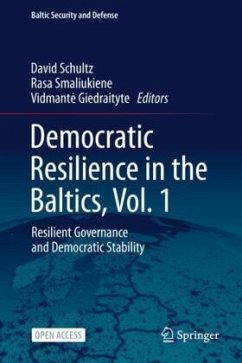
The US Leaked Files, State Secrecy and Democratic Intelligence Oversight in Europe

PAYBACK Punkte
18 °P sammeln!
The European Union has been experiencing a complex nature of national security threats as the war in Ukraine has threatened their geographical and political existence since 2022. Neither diplomacy nor engagement has prevented Europe's worst nightmare-the return of war on its soil. The EU is facing exponentially growing threats and challenges, ranging from conventional to transnational threats, including hybrid threats, extremism, violent riots, and pervasive instability and conflict in its immediate vicinity and beyond. Cooperation among EU intelligence agencies failed to cultivate a strong re...
The European Union has been experiencing a complex nature of national security threats as the war in Ukraine has threatened their geographical and political existence since 2022. Neither diplomacy nor engagement has prevented Europe's worst nightmare-the return of war on its soil. The EU is facing exponentially growing threats and challenges, ranging from conventional to transnational threats, including hybrid threats, extremism, violent riots, and pervasive instability and conflict in its immediate vicinity and beyond. Cooperation among EU intelligence agencies failed to cultivate a strong relationship with policymakers and a close interaction with civil society. Their sharp criticism against each other points to an important question about the border security and immigration crisis in the region. Italian Undersecretary for the Interior Nicola Molteni, warned that the riots in France were "a certification of the failure of uncontrolled migration and a warning for the rest of Europe." On 21 January 2015, French Prime Minister Manuel Valls presented a package of police and intelligence reforms to address the issue of radicalisation and terrorism. French politics is complex and indiscernible. The present riots in France abruptly became violent while foreign intelligence and vandals translated their anger by destroying everything. Interference of foreign intelligence agencies and involvement of jihadists in violence astonishingly shocked all European capitals There are many holes that facilitate foreign spy networks infiltration into French society. In July 2023, the French government authorized the police and law enforcement agencies to surreptitiously use mobile phones and other devices as their own surveillance tools. France needs to document all residents and identify who is living and where. Who is legal and who is illegal and what is their sectarian and religious background. Intelligence and the police needs to extend their network to remote villages, towns and cities in order to bring all criminals and sectarian mafia groups into their book.














